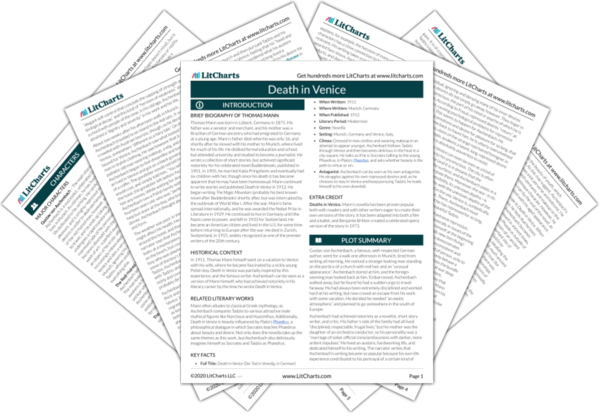Aschenbach sat in a city square and looked at the buildings around him, as “hot gusts of wind carried the smell of carbolic acid to him.” Aschenbach, “the master, the artist who had attained dignity. . . the man who had ascended the heights,” now sat looking pathetic. He had a “half-slumbering brain,” and began to talk to himself as if he were Socrates in Plato’s
Phaedrus. He asked Phaedrus whether he thought beauty was the path to wisdom, or whether it was “a dangerous charm, truly a path of error and sin.” Continuing to speak as Socrates, Aschenbach said that knowledge only leads to desire, which leads to “the abyss.”
